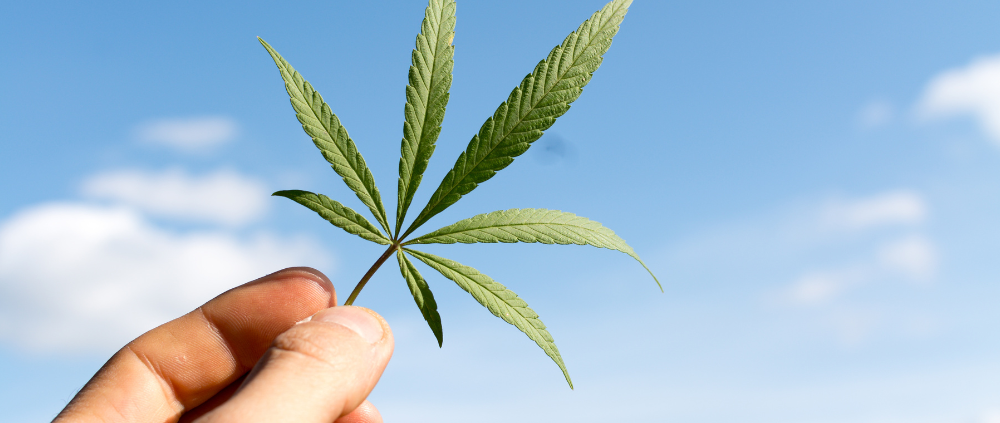Over 900,000 Floridians signed a petition to make marijuana legal for recreational use in Florida. Do laws have the potential to change, and what might Florida look like if they do?
Florida’s Current Rules on Marijuana Use
Marijuana is illegal at the federal level in the United States, but across the country, 21 states have legalized recreational marijuana and 37 states have approved medical marijuana in some form, as reported by Politico.
Florida is currently a state that permits marijuana use for medical purposes. A resident can obtain a Medical Marijuana Use Authorization if they have a qualifying medical condition as outlined by laws in Chapter 381 of the Florida Statutes.
In Florida, marijuana remains illegal for recreational use, but Florida’s law on marijuana could be changing.
Proposed Changes to Florida’s Rules on Marijuana
A constitutional amendment to legalize the recreational use of marijuana could be on the Florida ballot next year.
The proposed ballot measure to legalize recreational marijuana gathered enough signatures to put it on the ballot in 2024, according to Florida’s Department of State.
The proposed constitutional amendment — which gathered 967,528 valid signatures — allows “adults 21 years or older to possess, purchase, or use marijuana products and marijuana accessories for non-medical personal consumption by smoking, ingestion, or otherwise; allows Medical Marijuana Treatment Centers, and other state licensed entities, to acquire, cultivate, process, manufacture, sell, and distribute such products and accessories.”
The amendment could appear on the 2024 ballot, and if it receives at least 60% of the vote, it could pass and become law.
But there are still hurdles that could keep marijuana possession considered a crime in Florida.
Florida Attorney General Fights Changes
Florida Attorney General Ashley Moody has asked the Florida Supreme Court to reject the amendment. According to reporting by CBS News, Moody filed a 49-page brief claiming that the ballot summary would be “misleading to voters in several key respects.”
Twice before, the court ruled that previous initiatives aimed at authorizing the recreational use of marijuana did not meet constitutional standards.
If the amendment does not appear on the ballot and passes, Florida will continue to view marijuana possession as a criminal offense.
Related: If You’re Arrested for a Crime, Immediately Take These 6 Steps
Current Punishments for Marijuana Crimes in Florida
In Florida, it is a crime to possess or sell marijuana, marijuana paraphernalia, and hashish or concentrates.
Possession and sale of less than 20 grams of marijuana are misdemeanor crimes. Both charges carry a maximum penalty of one year in prison and a maximum fine of $1,000, although a few counties and cities throughout Florida have decriminalized marijuana possession when under 20 grams.
Some jurisdictions provide officers with the discretion to replace arrests for possession of under 20 grams with citations. Penalties in these locations range from citations and fines ranging from $75 to $155.
Possession and sale of more than 20 grams of marijuana are felony crimes. Depending on the amount, someone charged with marijuana possession or sale could face between three and thirty years in prison and fines between $5,000 and $200,000.
Related: Misdemeanor vs Felony: What’s the Difference?
How Has the Legalization of Drugs Impacted Other States?
The first two states to legalize recreational use of marijuana were Colorado and Washington in 2012. Per reporting by NPR, data on the impacts of the two states showed that the legalization of marijuana:
- Didn’t seem to substantially affect crime rates
- Seemed to have little or no effect on traffic accidents and fatalities
- Created jobs and proved to be good for state budgets
- Led to more adults over 26 consuming cannabis
Some states have taken it further and decriminalized hard drugs in addition to marijuana. Three years ago, residents in Oregon approved a ballot measure that eliminated criminal penalties for possessing small amounts of any drug, including cocaine, heroin, and methamphetamine.
According to reporting by MSN, these law changes have had a negative effect on the state. “The state experienced one of the sharpest rises in overdose deaths in the nation and had one of the highest percentages of adults with a substance-use disorder.”
The results of legalizing marijuana and legalizing other hard drugs had different impacts on states. Now, Florida will wait to see if legalizing marijuana will pass and if so, how it impacts the state.
Related: The Best Criminal Defense Attorneys Have These 7 Qualities
Talk to an Attorney If Charged with Marijuana Possession
Marijuana possession, even in small amounts, remains illegal in Florida unless a resident has Medical Marijuana Use Authorization. While the punishment for marijuana possession ranges widely depending on the amount and the laws of local jurisdictions, drug possession is still a crime and should be taken seriously.
If you have been charged with marijuana possession, talk to a criminal defense attorney who can give you the best advice about how to navigate your charges and situation. Set up a free consultation with TJ Grimaldi to discuss your case and create a plan of action to address the charges.




Leave a Reply
Want to join the discussion?Feel free to contribute!